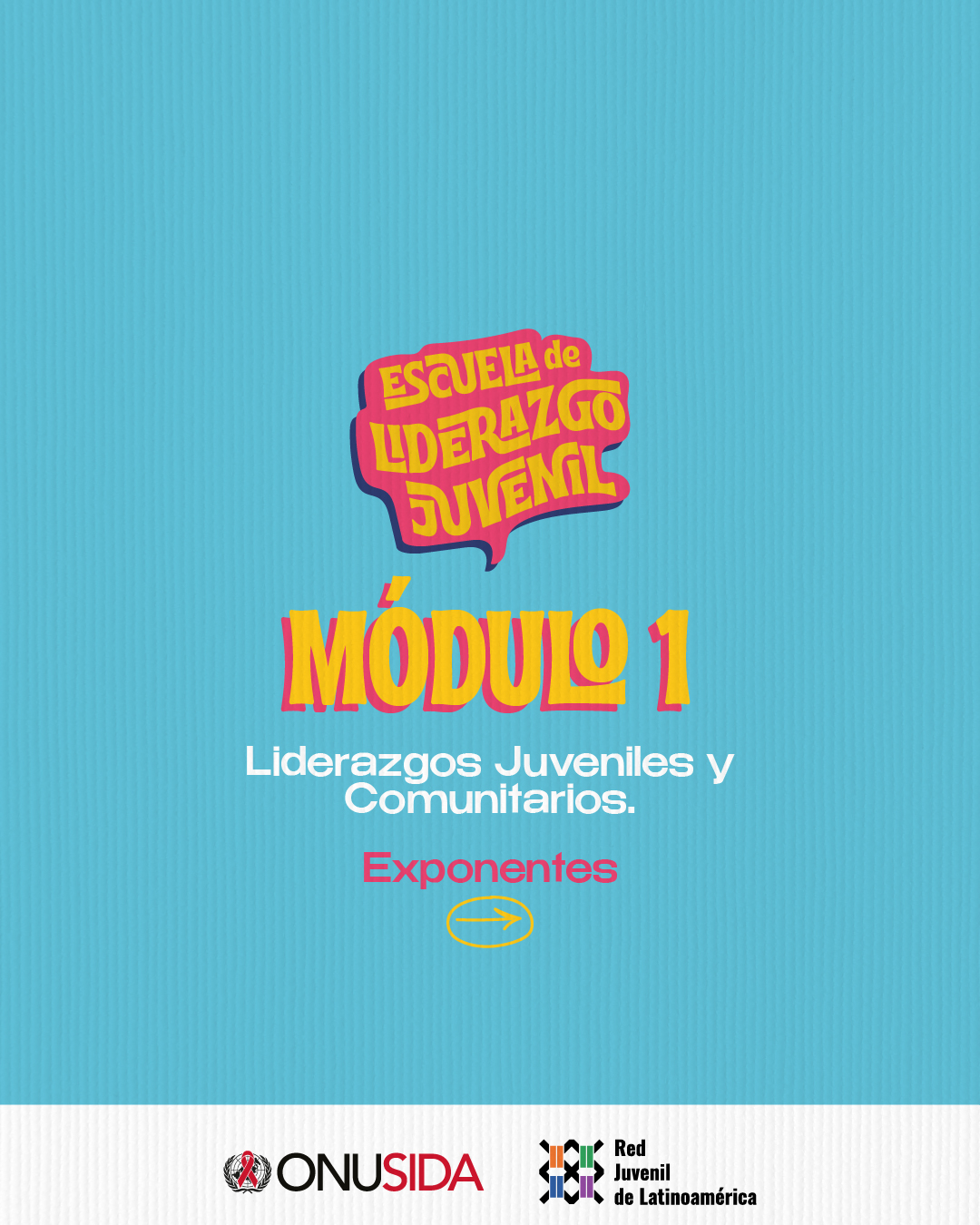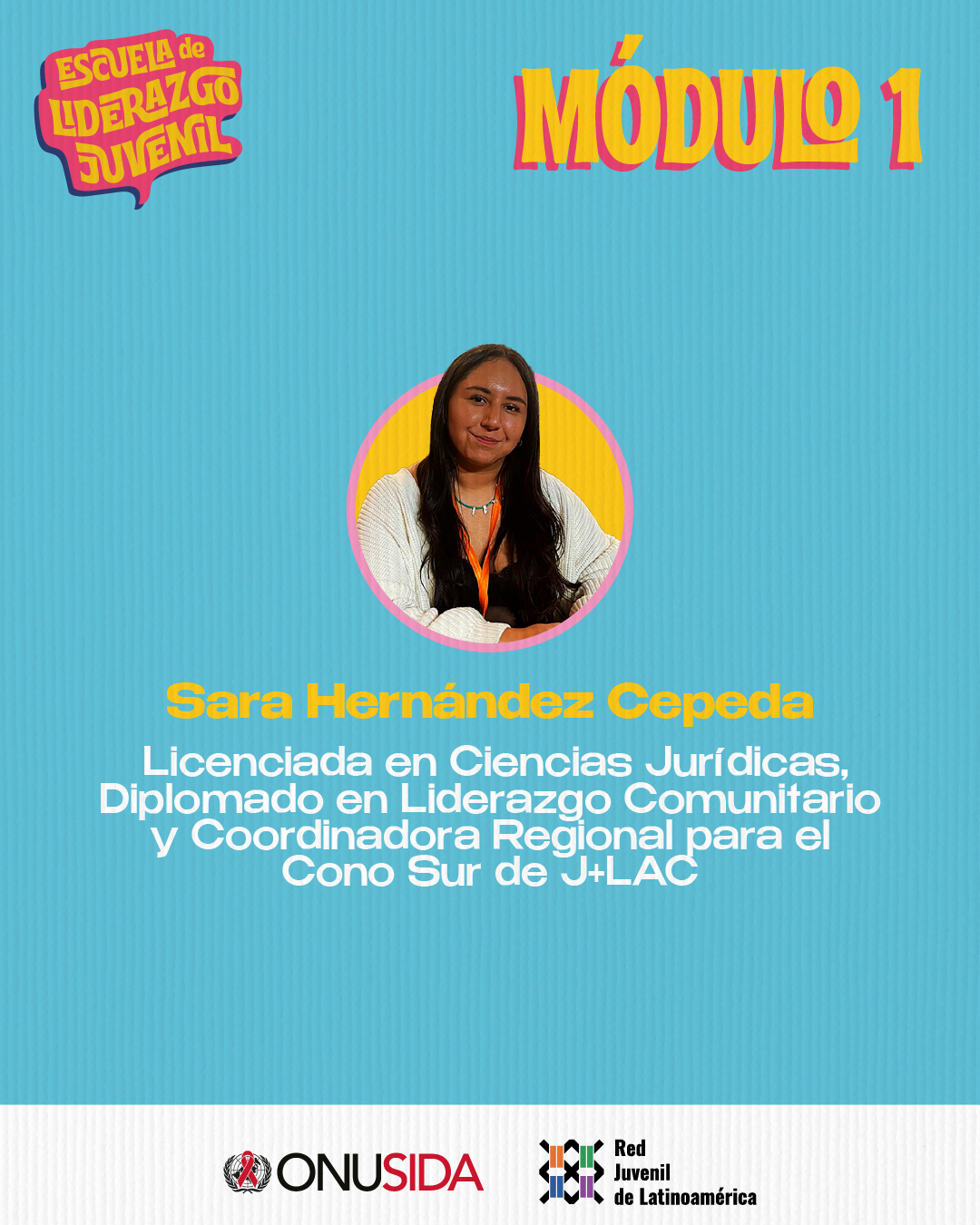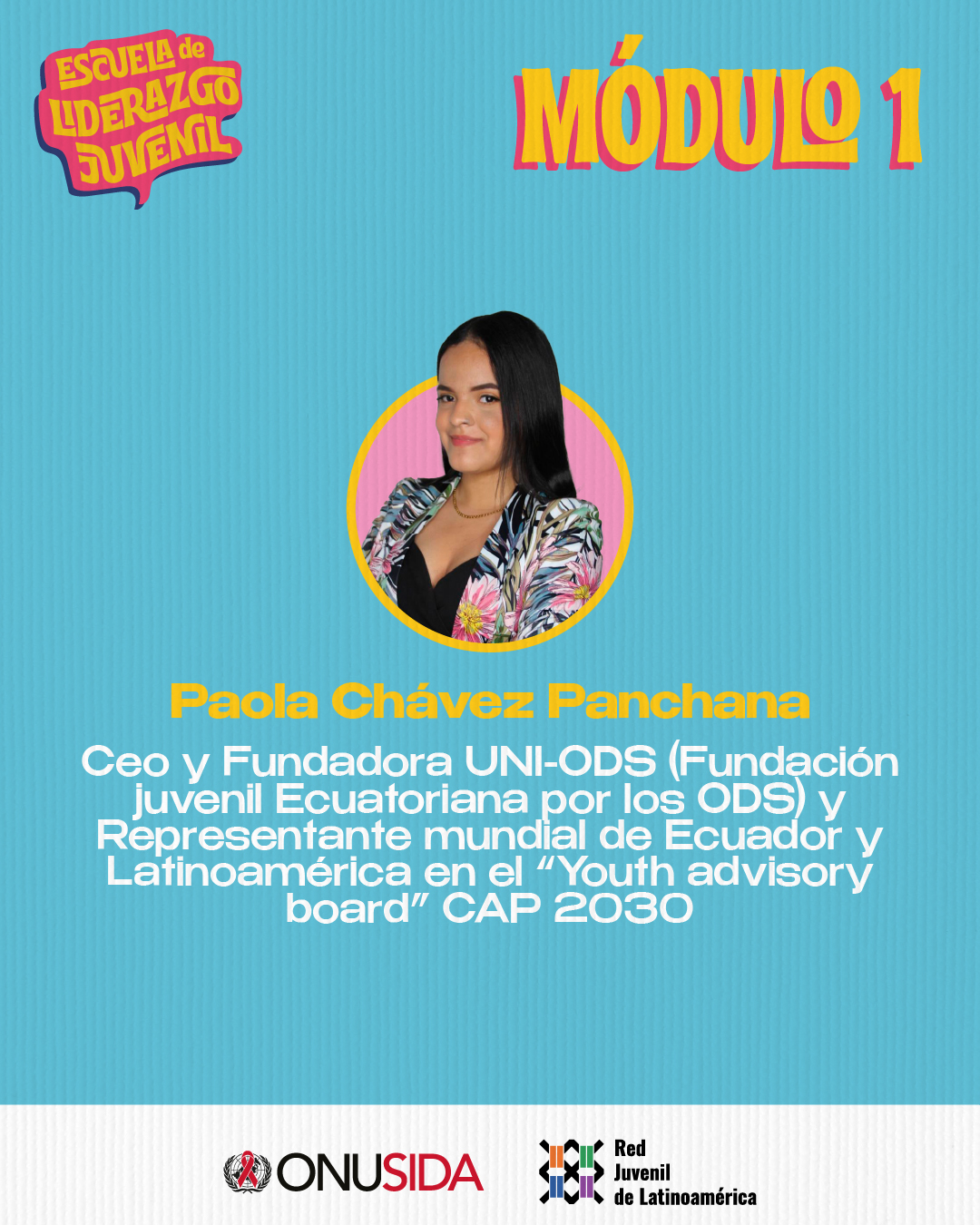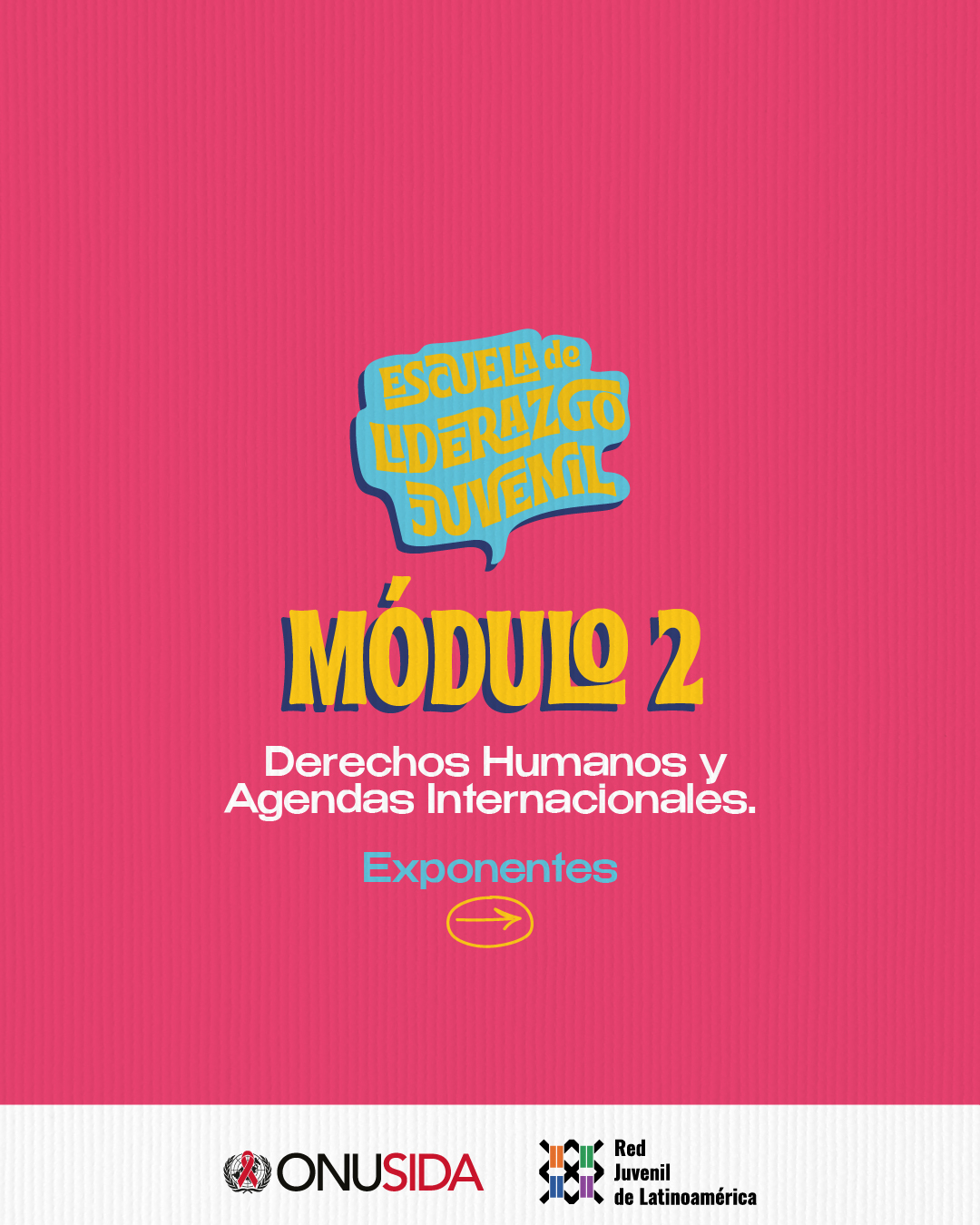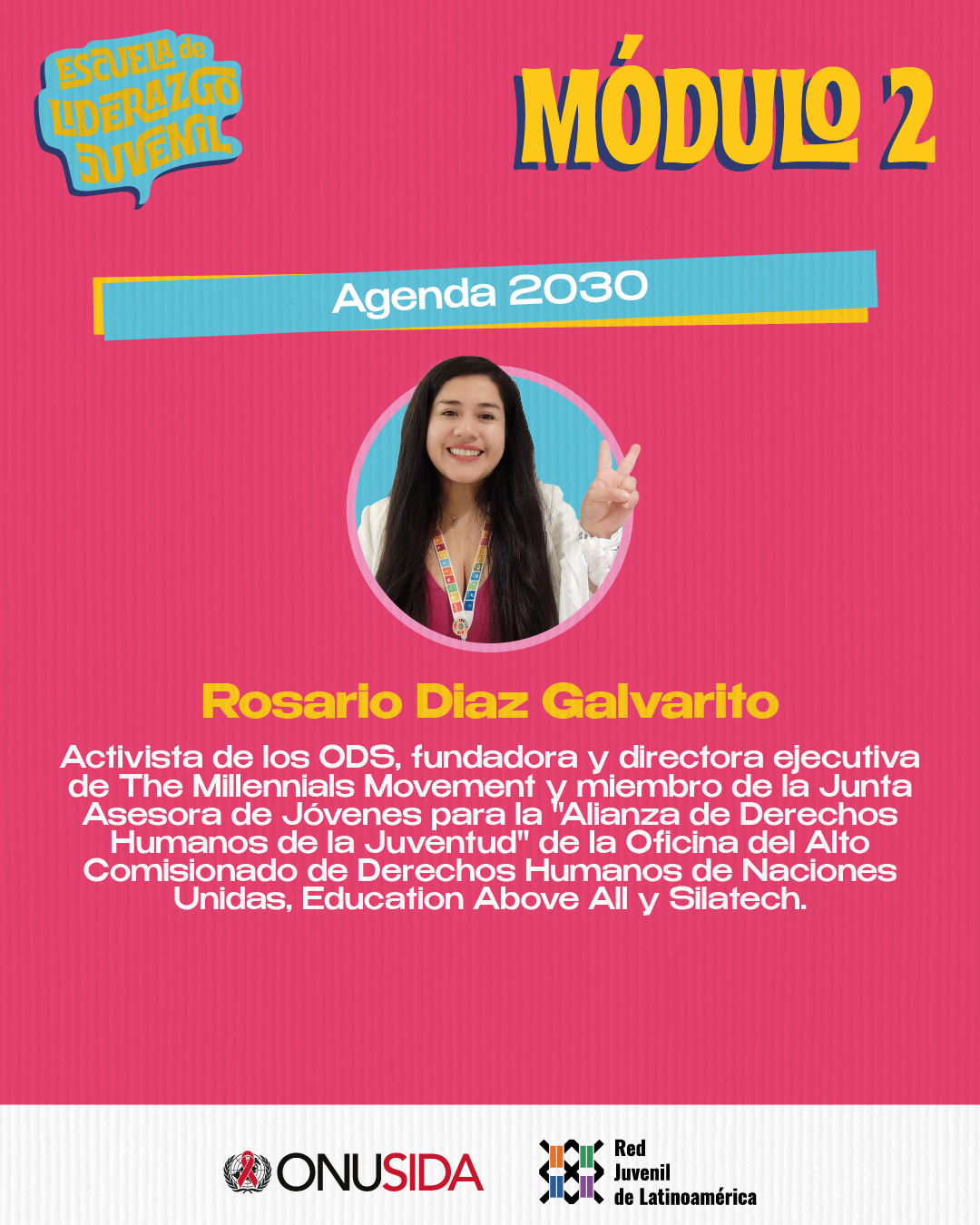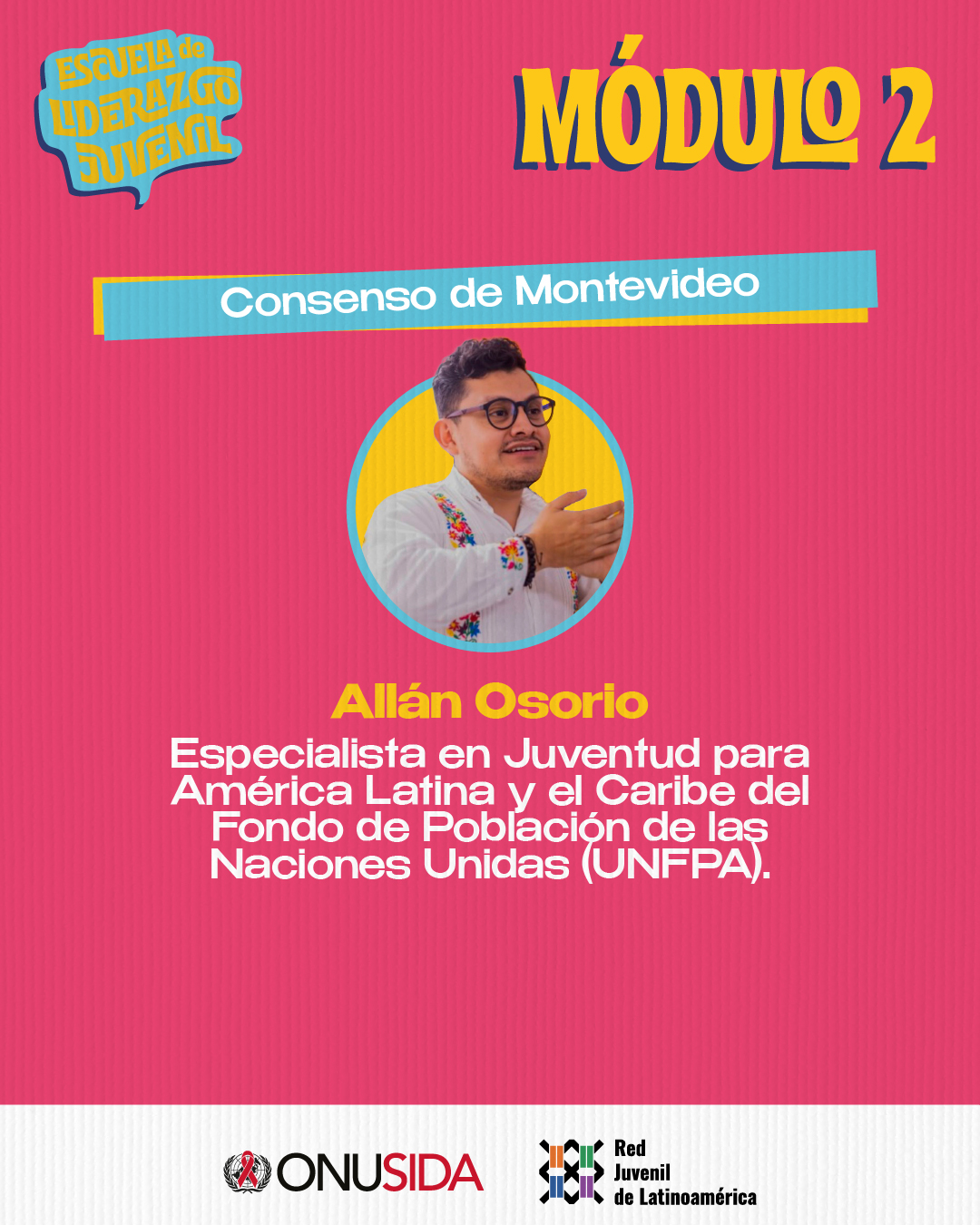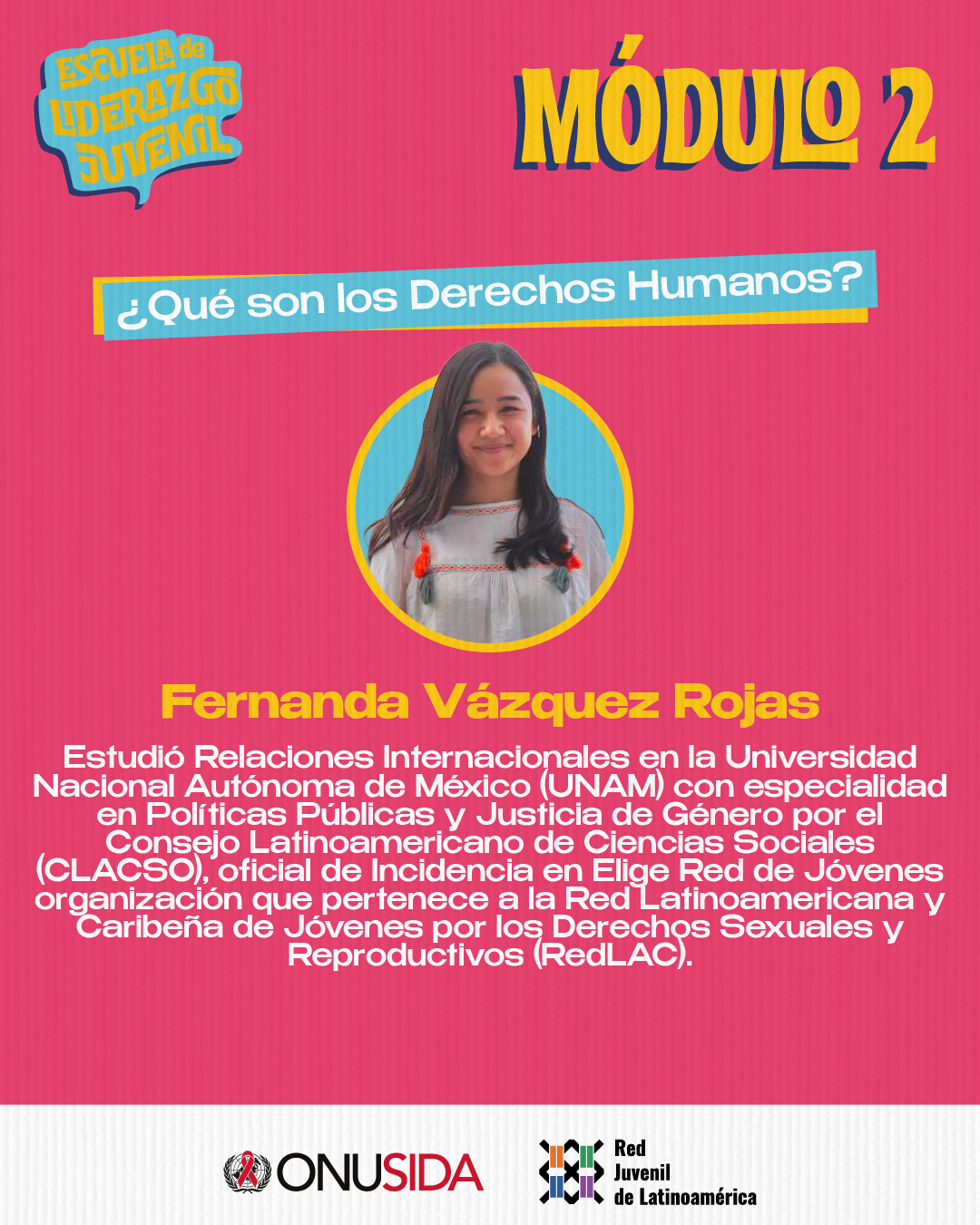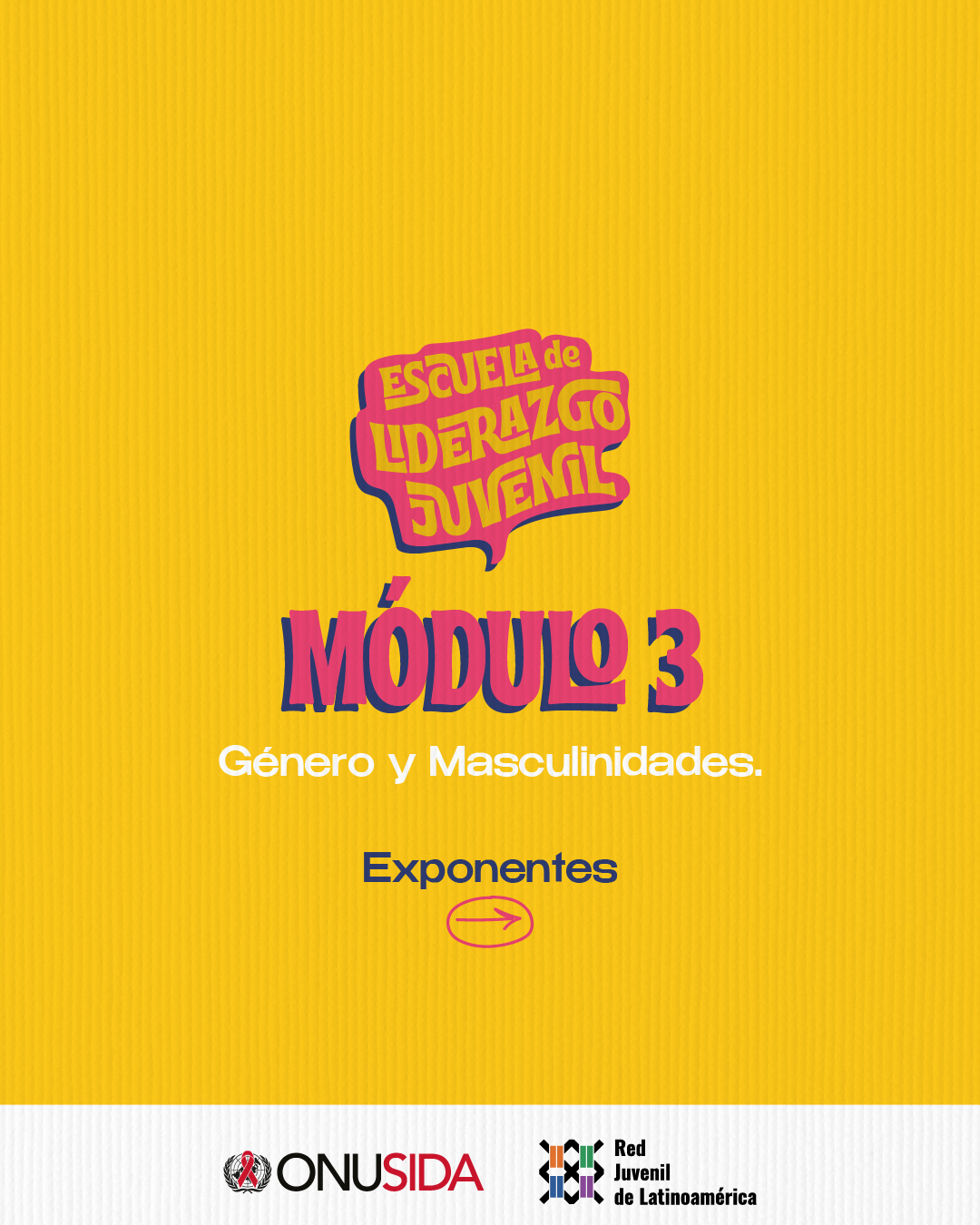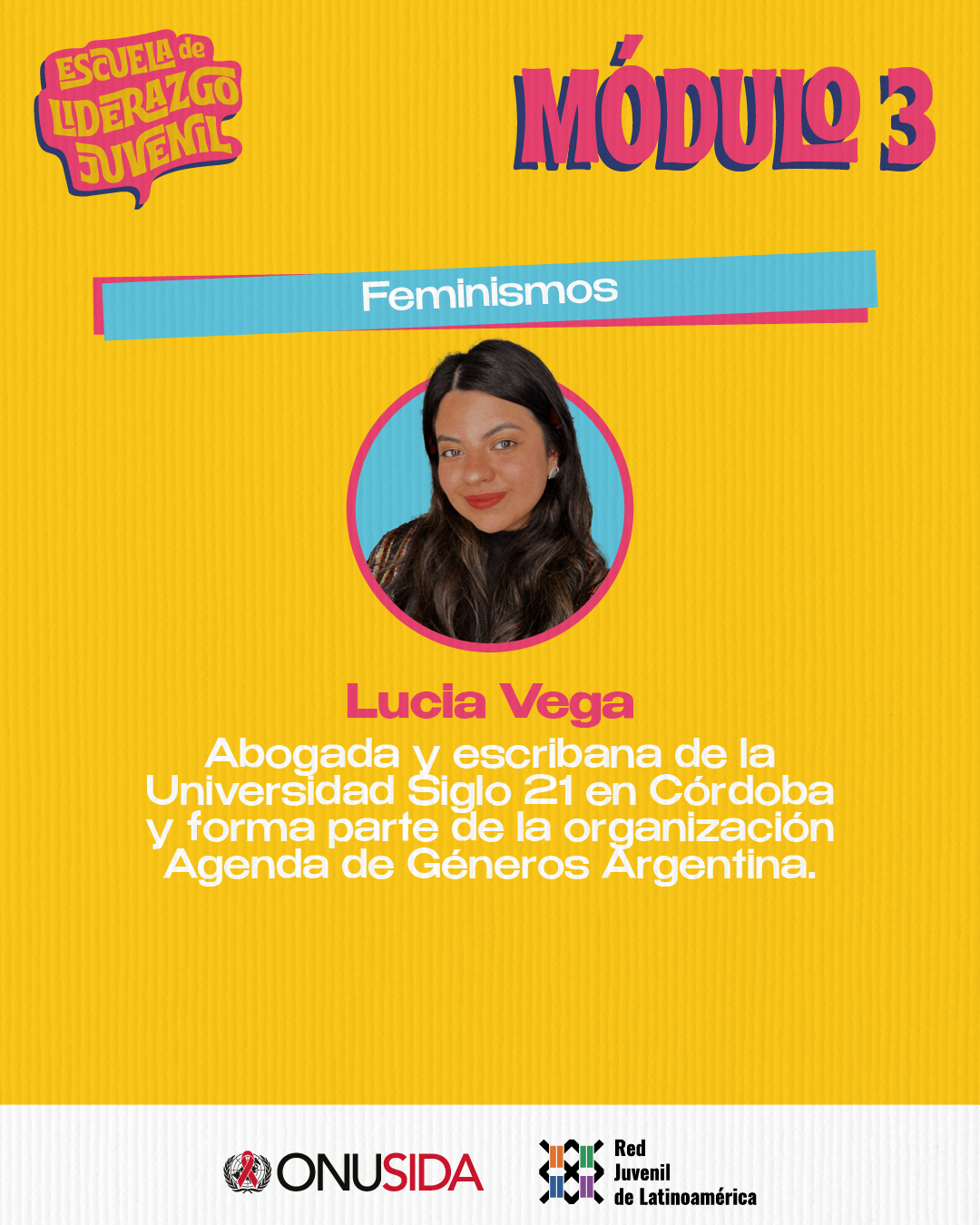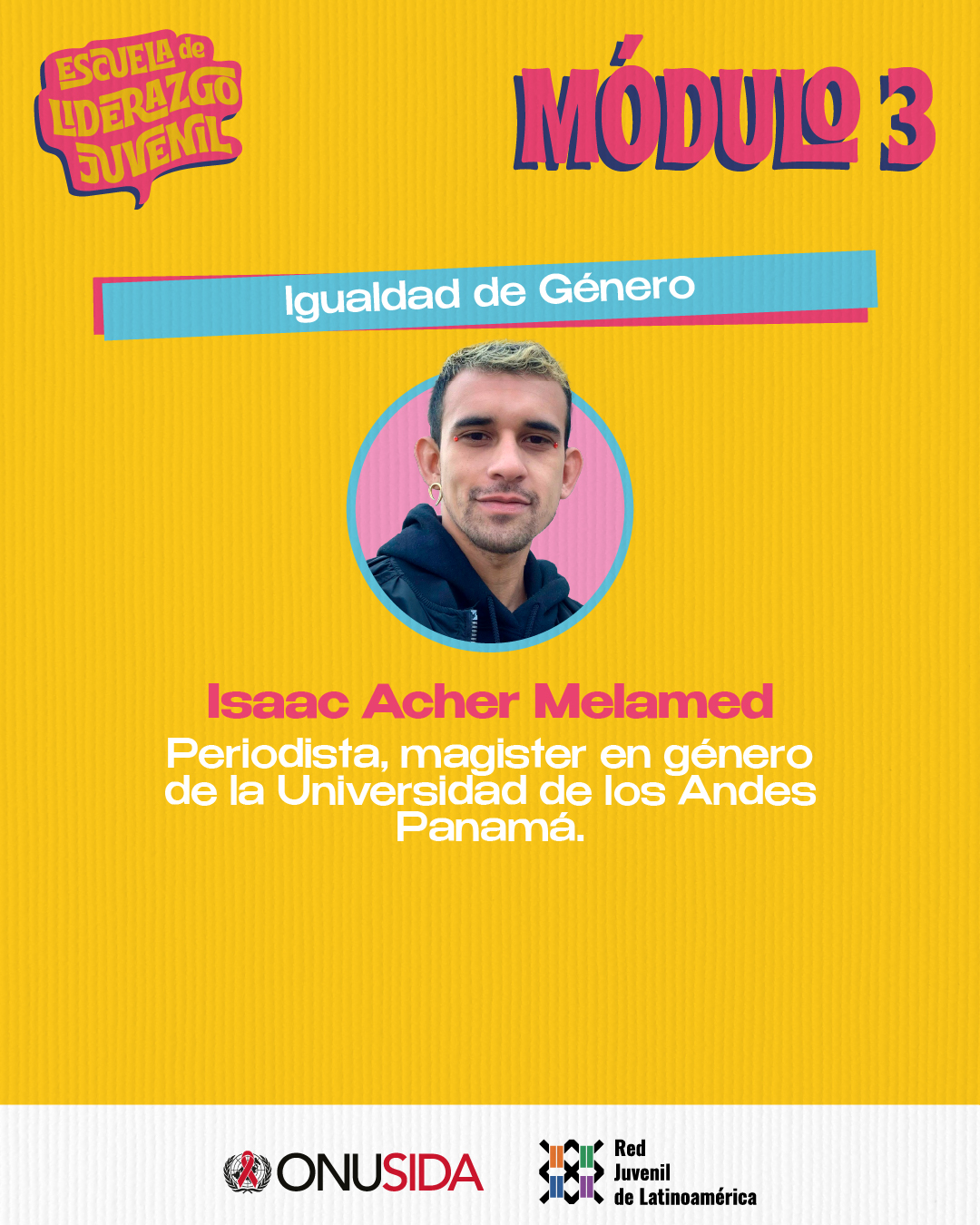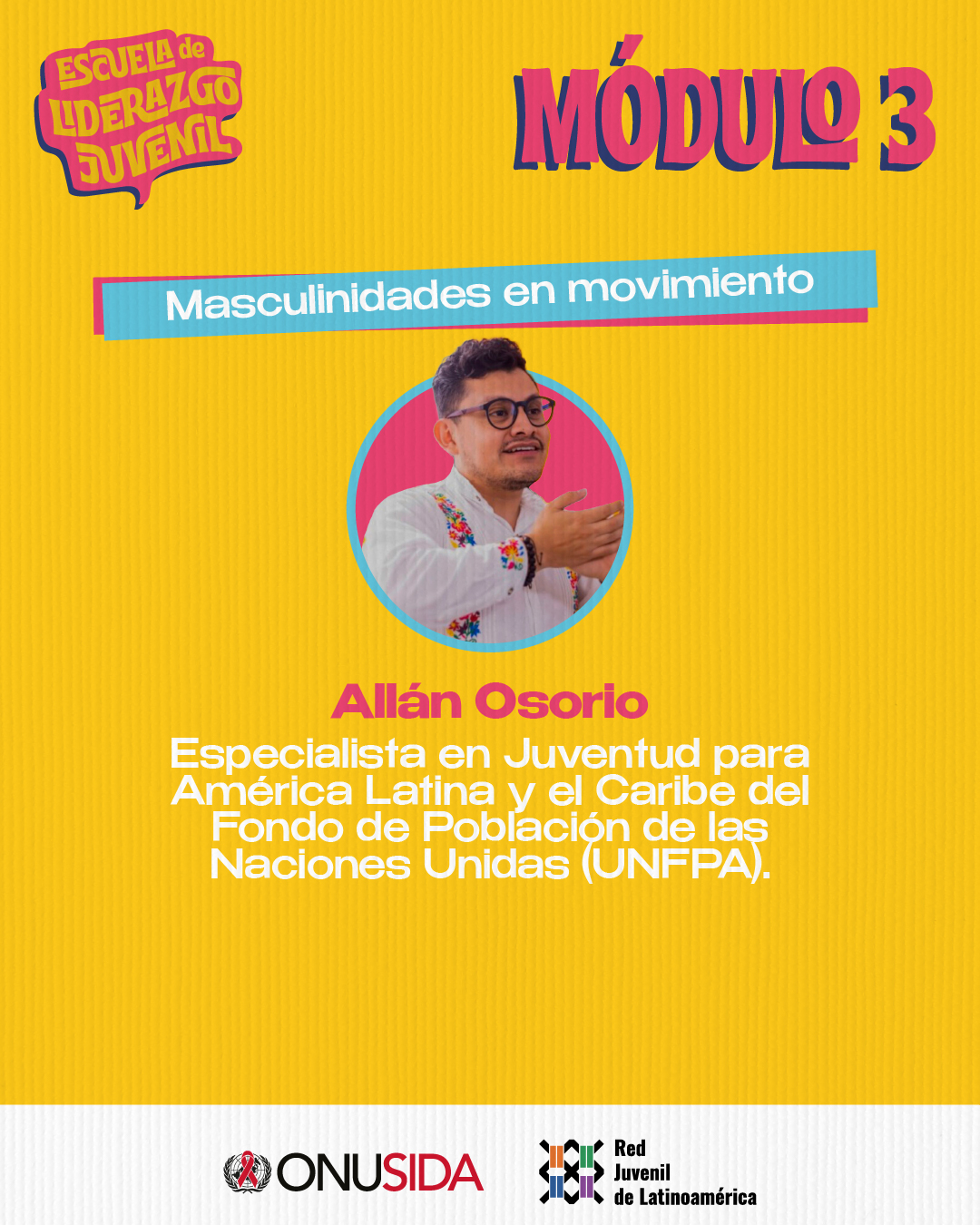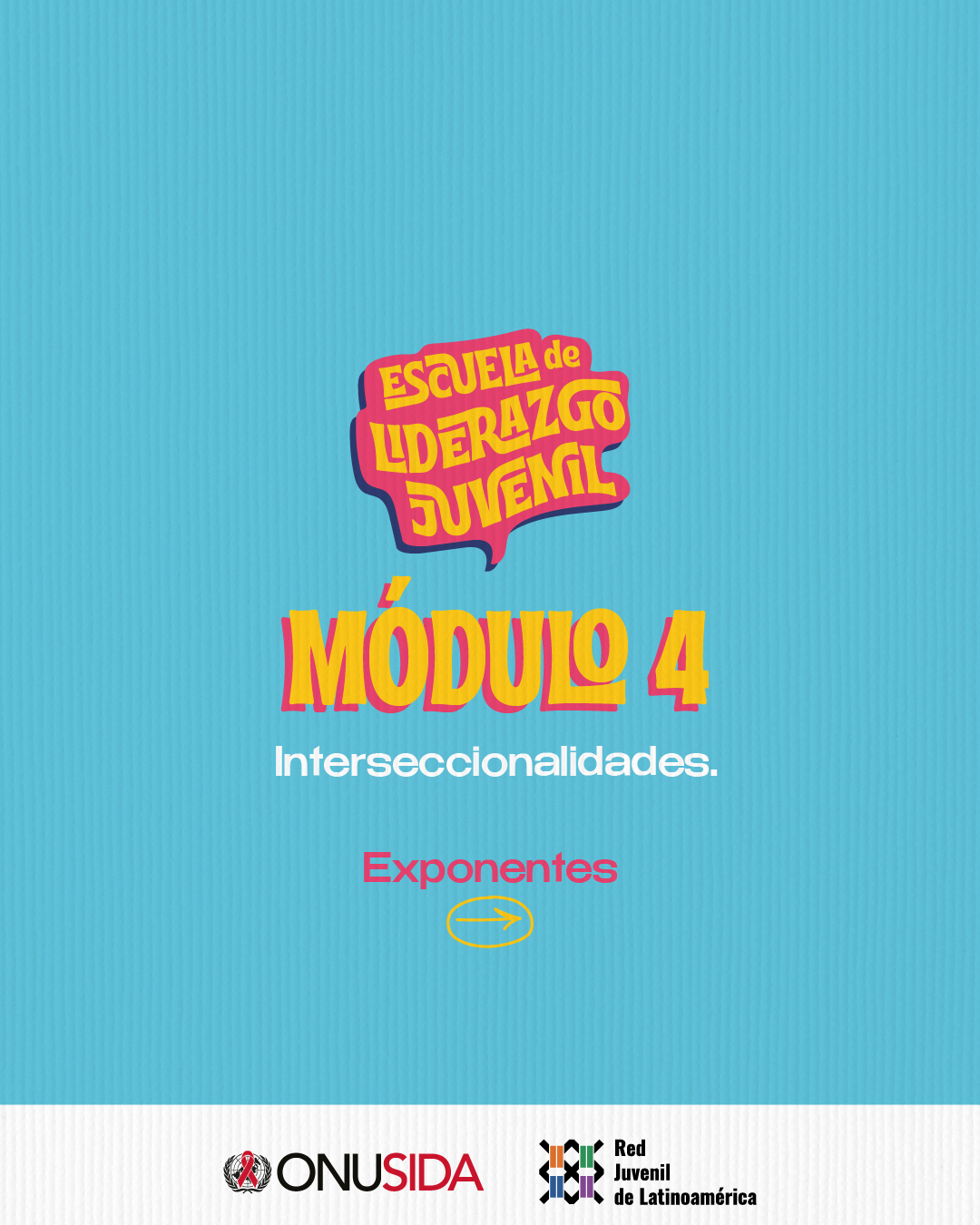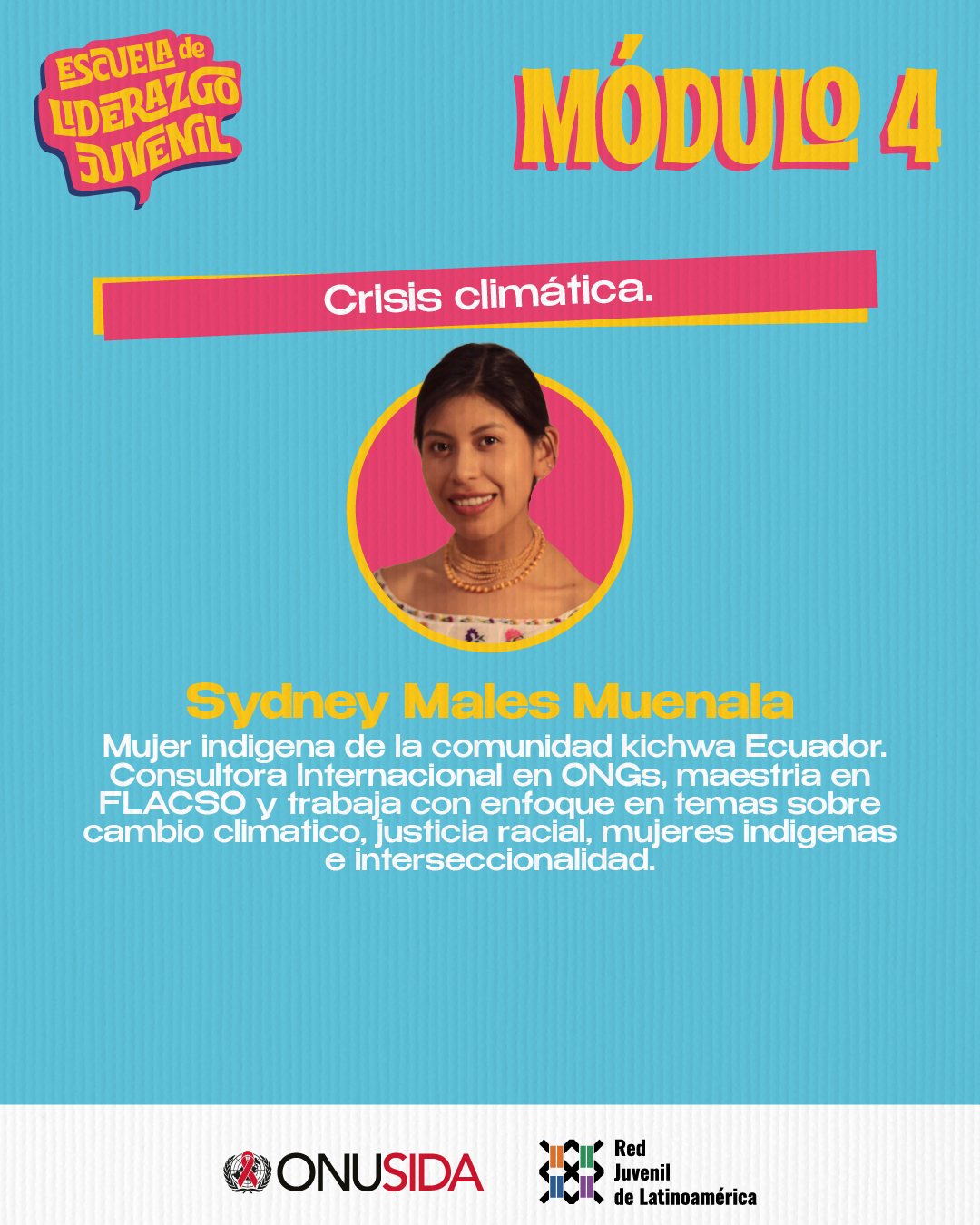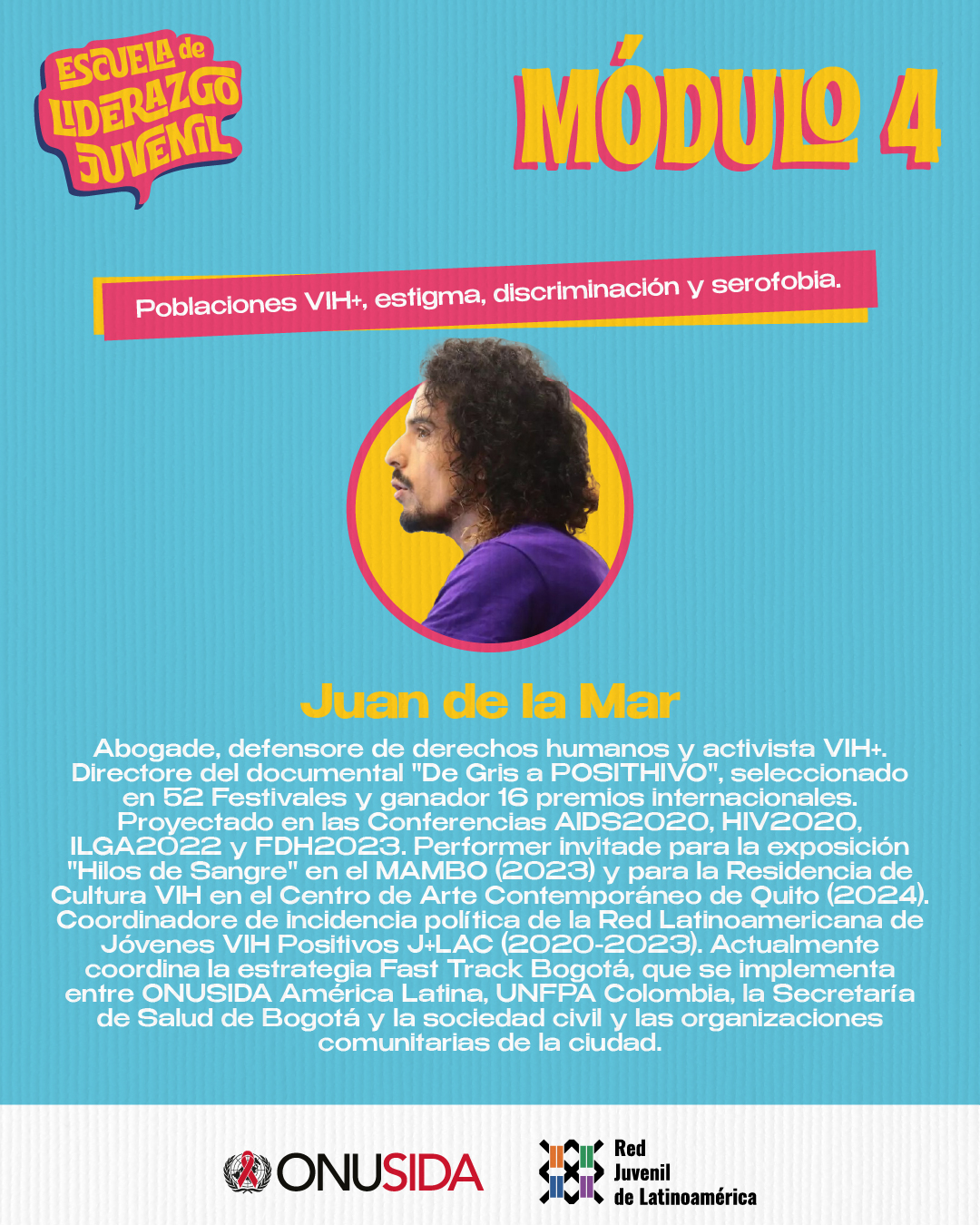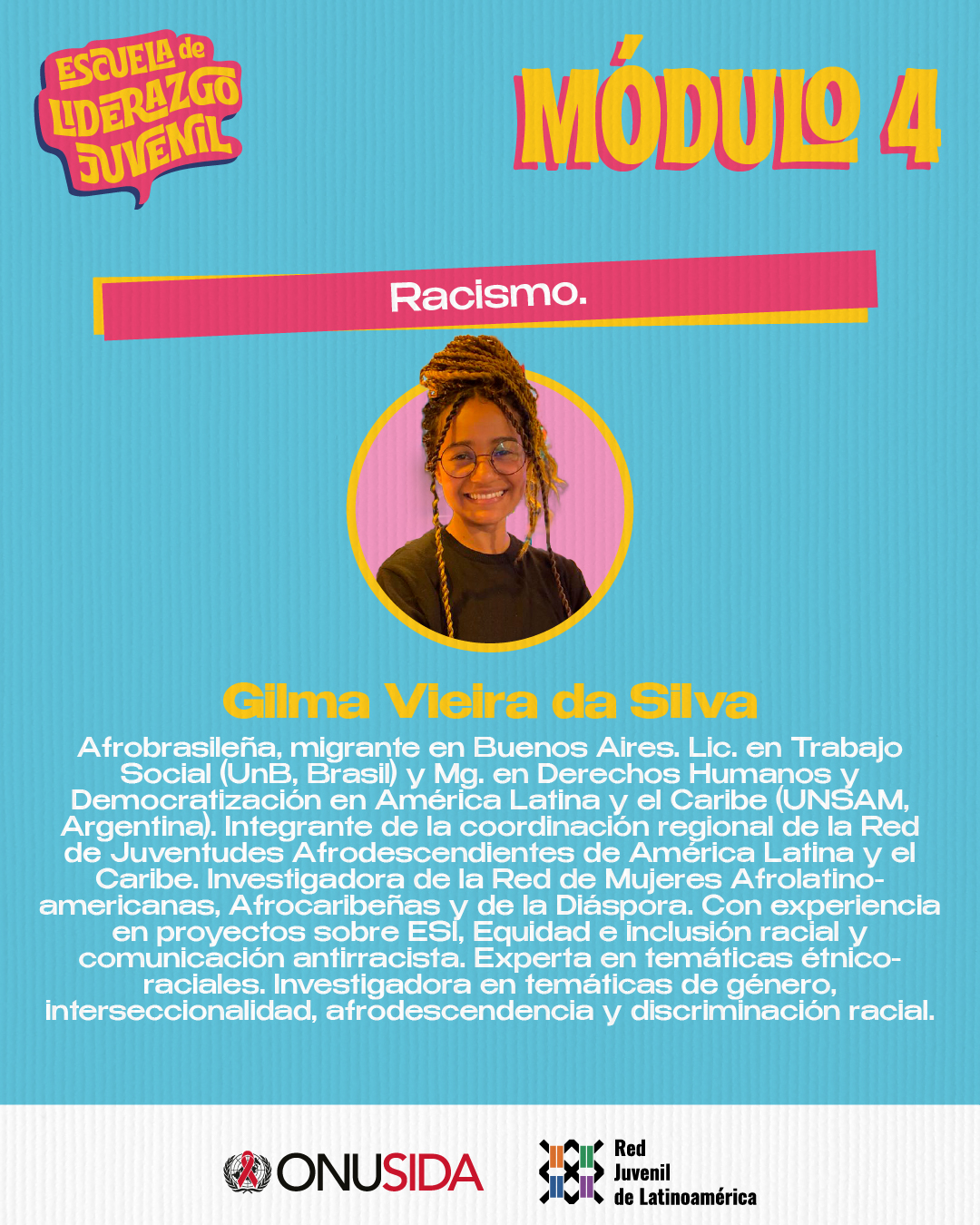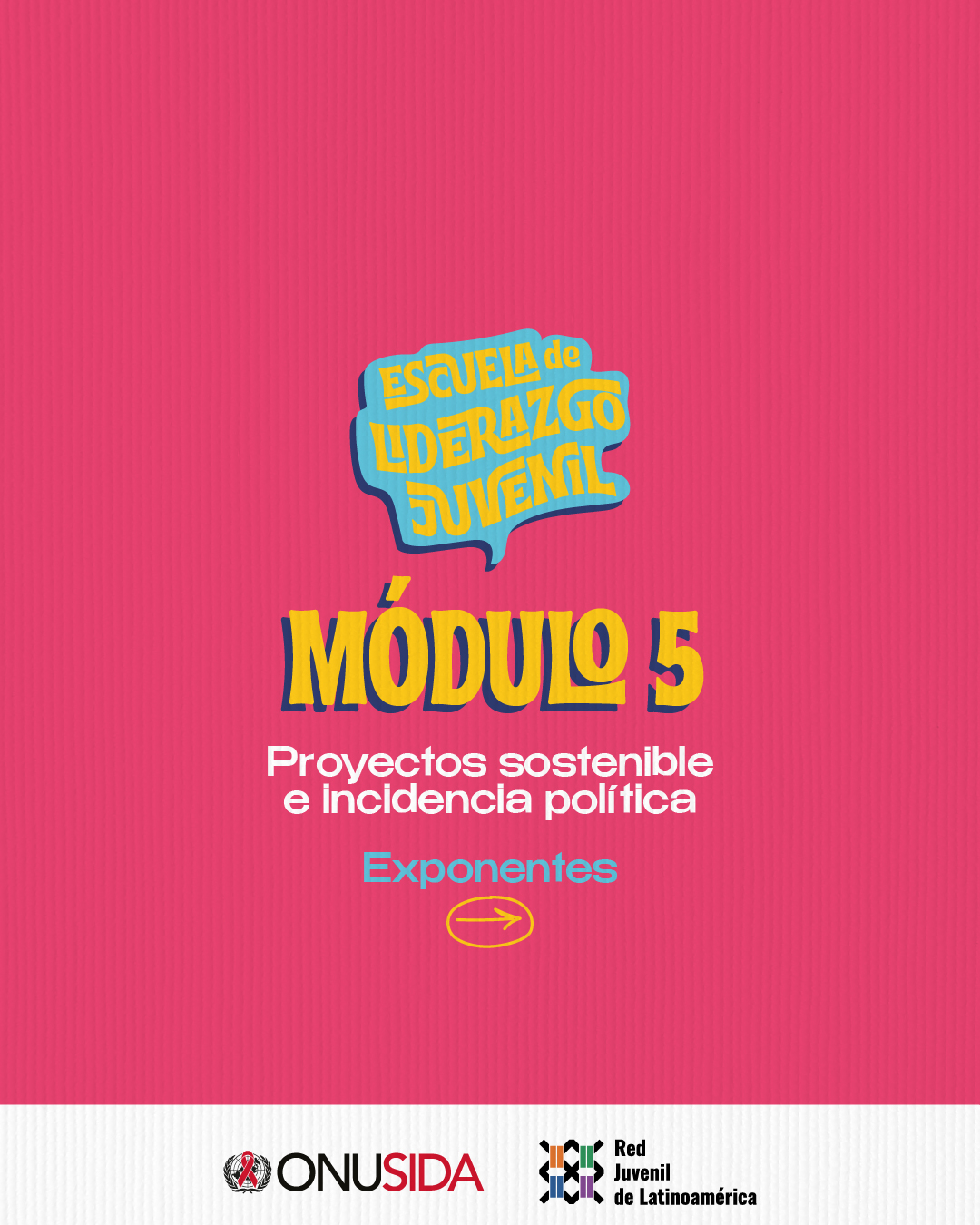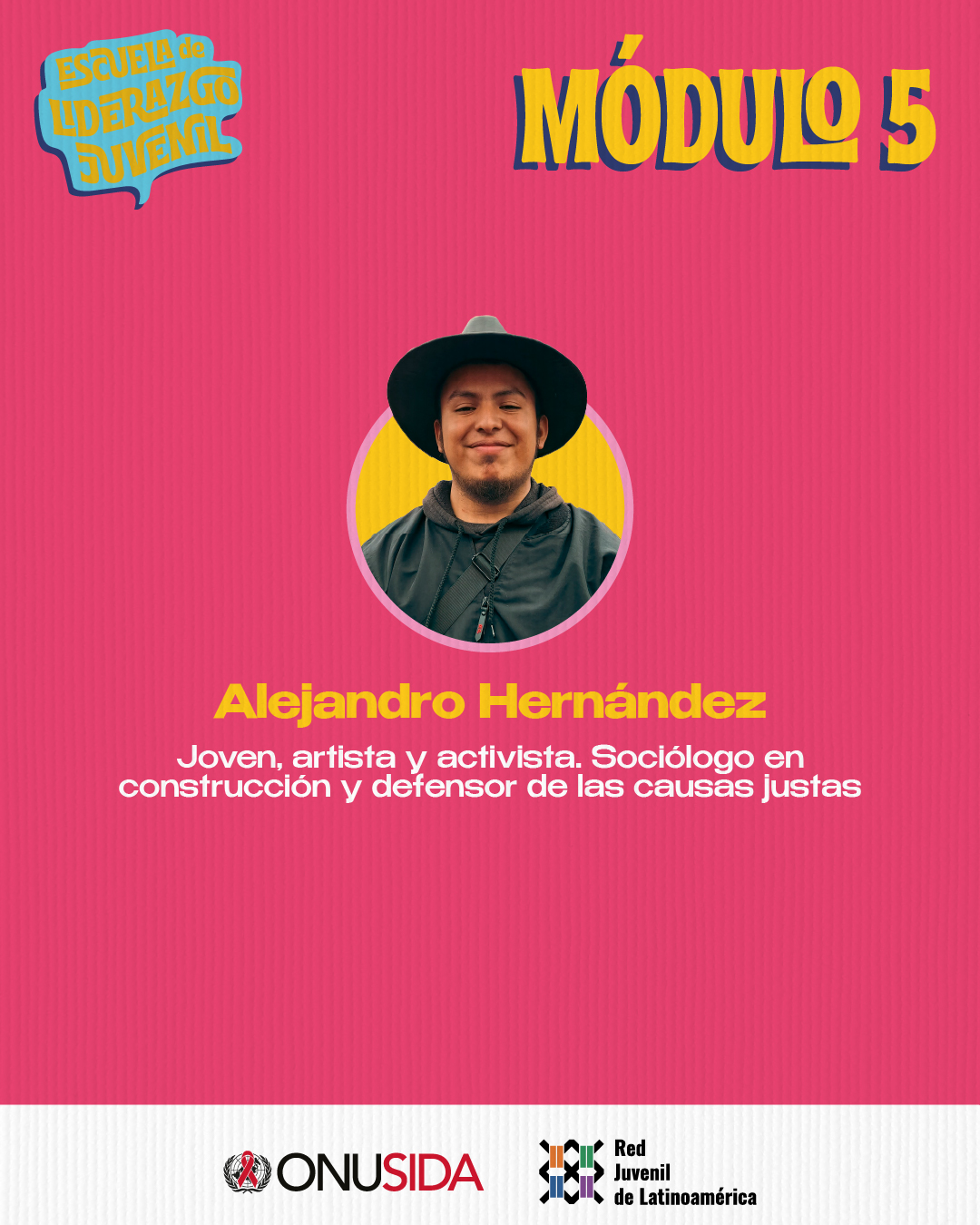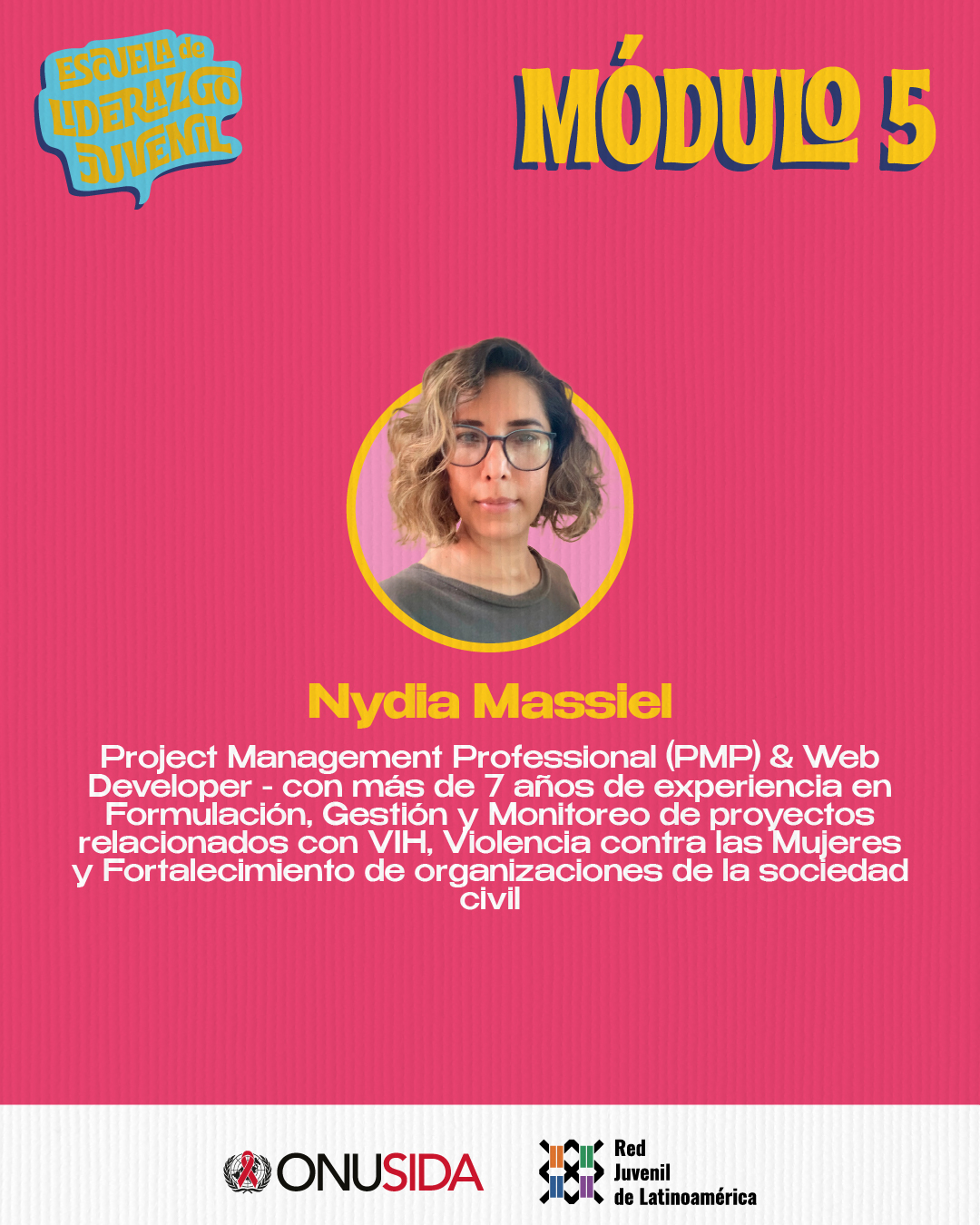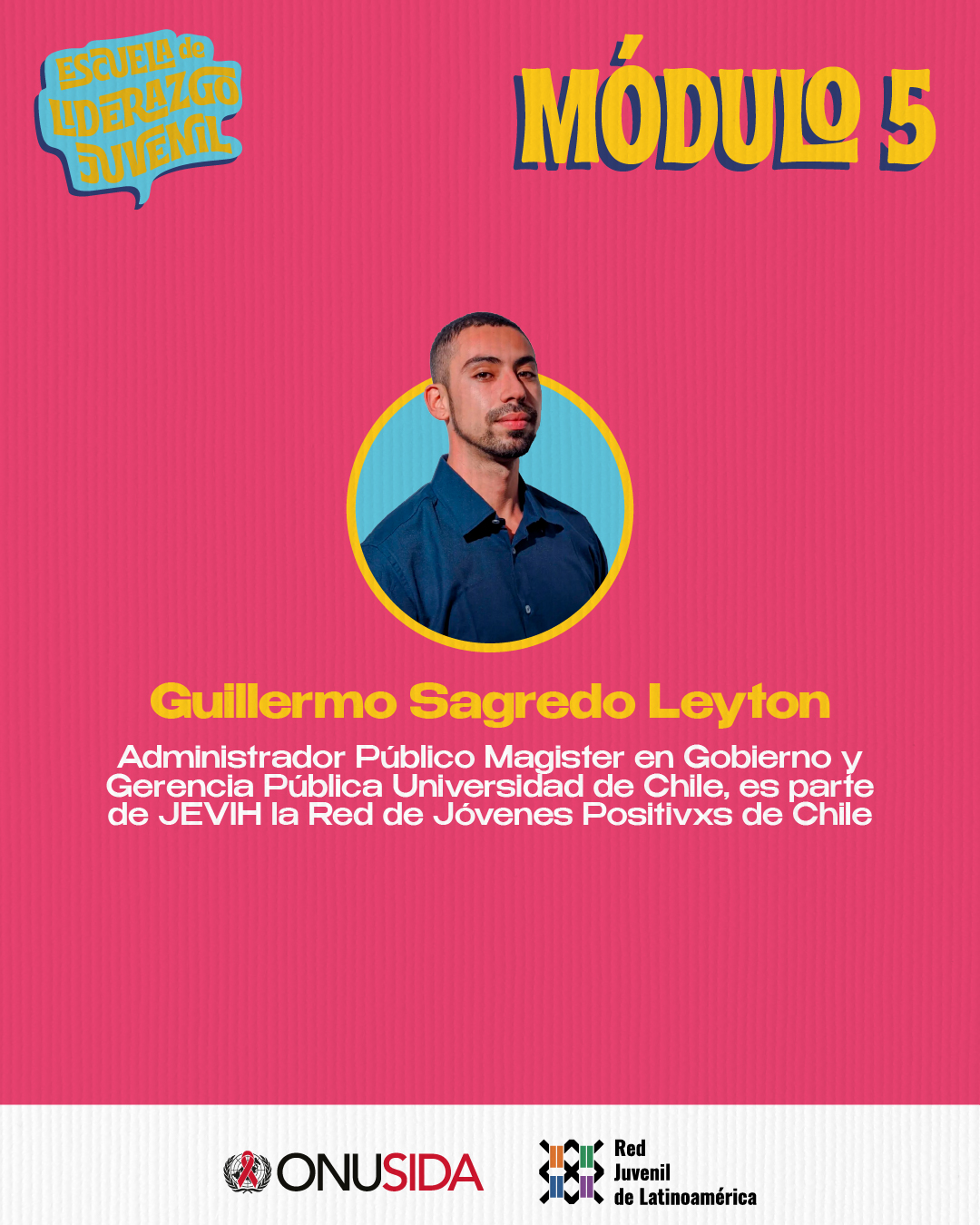Recursos
1. Youth Leadership School
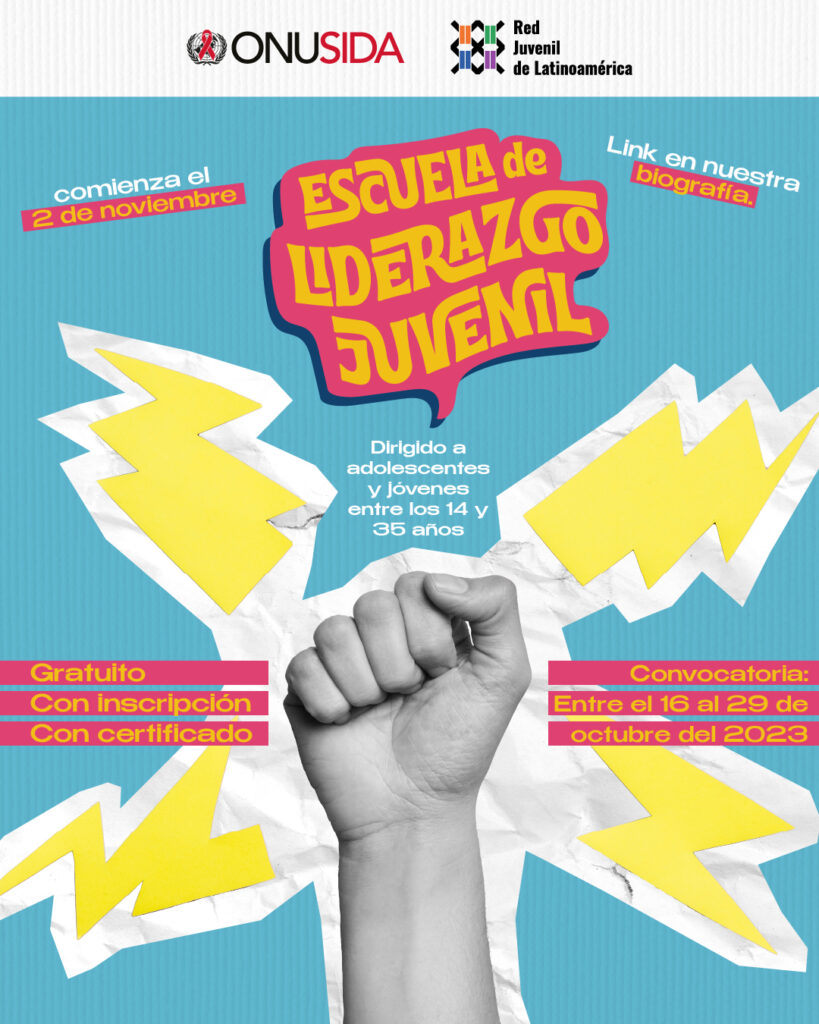
The Youth Leadership School was a virtual, free, and certified course conducted by the Consortium of Youth Organizations (LAC Youth Network) between November and December 2023 with the support of UNAIDS Latina. Its purpose was to provide knowledge and tools for political advocacy to young people and adolescents with leadership profiles from Latin America.
The course included five continuous training modules on topics relevant to the consortium such as: Leadership, human rights, international agendas (Agenda 2030 and Montevideo Consensus), gender, feminisms, masculinities, intersectionalities (stigma and discrimination against HIV+ individuals, racism, and climate crisis), project creation, strategic alliances, public policies, and citizen participation.
The school had a total of 1,231 registrants, of which 313 were accepted. We had participants from Argentina, Bolivia, Brazil, Chile, Colombia, Ecuador, Paraguay, Peru, Uruguay, Venezuela, El Salvador, Nicaragua, Guatemala, Honduras, Panama, Cuba, Puerto Rico, the Dominican Republic, and Mexico.
Click on the posters to access their content.
One of the features of the school is that the instructors were young people from various regional and national networks who possessed the necessary expertise to conduct these trainings. It is important for the LAC Youth Network to enhance the leadership skills and existing capabilities of Latin American youth.
2. Youth Declaration in the Framework of the Montevideo Consensus Anniversary
The past ten years have witnessed a renewed commitment to the rights and participation of youth in Latin America and the Caribbean, reflected in the historic Montevideo Consensus on Population and Development. This agreement, signed in 2013 during the third Regional Conference on Population and Development of Latin America and the Caribbean, established a comprehensive roadmap to address the challenges and seize the opportunities related to population and development in the region.
In this context, and as part of the commemoration of the 10th anniversary of the Montevideo Consensus, it is crucial to recognize the fundamental role of youth as agents of change and promoters of sustainable development in our region. The creation of a Youth Declaration presented a unique opportunity to:
- Reaffirm Commitments: The Declaration allowed reaffirming the commitment of youth, civil society organizations, and other relevant actors to the promotion and protection of youth rights, in line with the principles and objectives established in the Montevideo Consensus.
- Highlight Achievements and Challenges: Through the Declaration, it is possible to highlight the achievements made and the challenges remaining in terms of inclusion, participation, education, employment, health, and other aspects that impact the lives of youth in our region. This will enable the identification of priority areas for action and mobilize resources and wills to effectively address them.
- Promote Active Participation: The Declaration was a space to promote the active and meaningful participation of youth in the design, implementation, and evaluation of public policies, programs, and actions that concern and involve us directly in our territories. This contributes to strengthening democracy, inclusive governance, and social cohesion in our countries.
- Generate Strategic Alliances: The Declaration will facilitate the creation of strategic alliances among different actors involved in working with and for youth, including governments, civil society organizations, the private sector, academia, and international organizations. These alliances are essential to maximize the impact of our actions and generate positive synergies in favor of youth.
- Encourage Intergenerational Dialogue: The Declaration will promote intergenerational dialogue as a mechanism for the exchange of experiences, knowledge, and perspectives between young people and people from other generations. This will help to build bridges of understanding and solidarity, as well as to leverage the diversity of ideas and approaches to address the common challenges we face as a society.
In summary, the creation of this Youth Declaration in the context of the 10th anniversary of the Montevideo Consensus represents an invaluable opportunity to reaffirm commitments, highlight achievements and challenges, promote active participation, generate strategic alliances, and foster intergenerational dialogue in our region. We are convinced that this joint effort will allow us to advance towards a fairer, more inclusive, and sustainable future for everyone.
3. Meeting: "Youth Activating from Intersectionality" - Picnic, Music, and More.
In August 2023, ten years were marked since representatives from 38 member states of the Economic Commission for Latin America and the Caribbean (ECLAC) approved the Montevideo Consensus at the first meeting of the Regional Conference on Population and Development held in Montevideo, Uruguay. To commemorate this anniversary, the Fifth Meeting of the Executive Board of the Regional Conference on Population and Development of Latin America and the Caribbean will be held in Santiago, Chile on November 14 and 15. The objectives of the meeting are to commemorate the tenth anniversary of the adoption of the Consensus, to present the document Population, Development, and Rights in Latin America and the Caribbean: “Proposal for the Second Regional Report on the Implementation of the Montevideo Consensus on Population and Development” by the technical secretariat, and to present the voluntary national reports on the implementation of the Consensus by the governments.
This is an in-person event that will be attended by representatives of governments, international cooperation agencies, civil society organizations, and other strategic partners, and will allow for the presentation of the regional vision on population and development leading up to ICPD+30 which was held in April 2024 in Africa.
As part of this event, the LAC Youth Network organized a satellite (parallel) event aimed at promoting a space for reflection among attending youths, to share experiences, create networks, and develop a regional mapping of what youths expect in terms of population and development leading up to ICPD+30.
In this context, strategic information was collected, asking triggering questions and sharing information from different territories, through collaborative work with all the youths and organizations present. This action allowed for the creation of a document that collects all the perspectives of the youths on the Montevideo Consensus, recognizing its advances and setbacks, proposing innovative ideas from the youth, and aiming to be a key input to recognize the reality of the region in terms of population and development.
